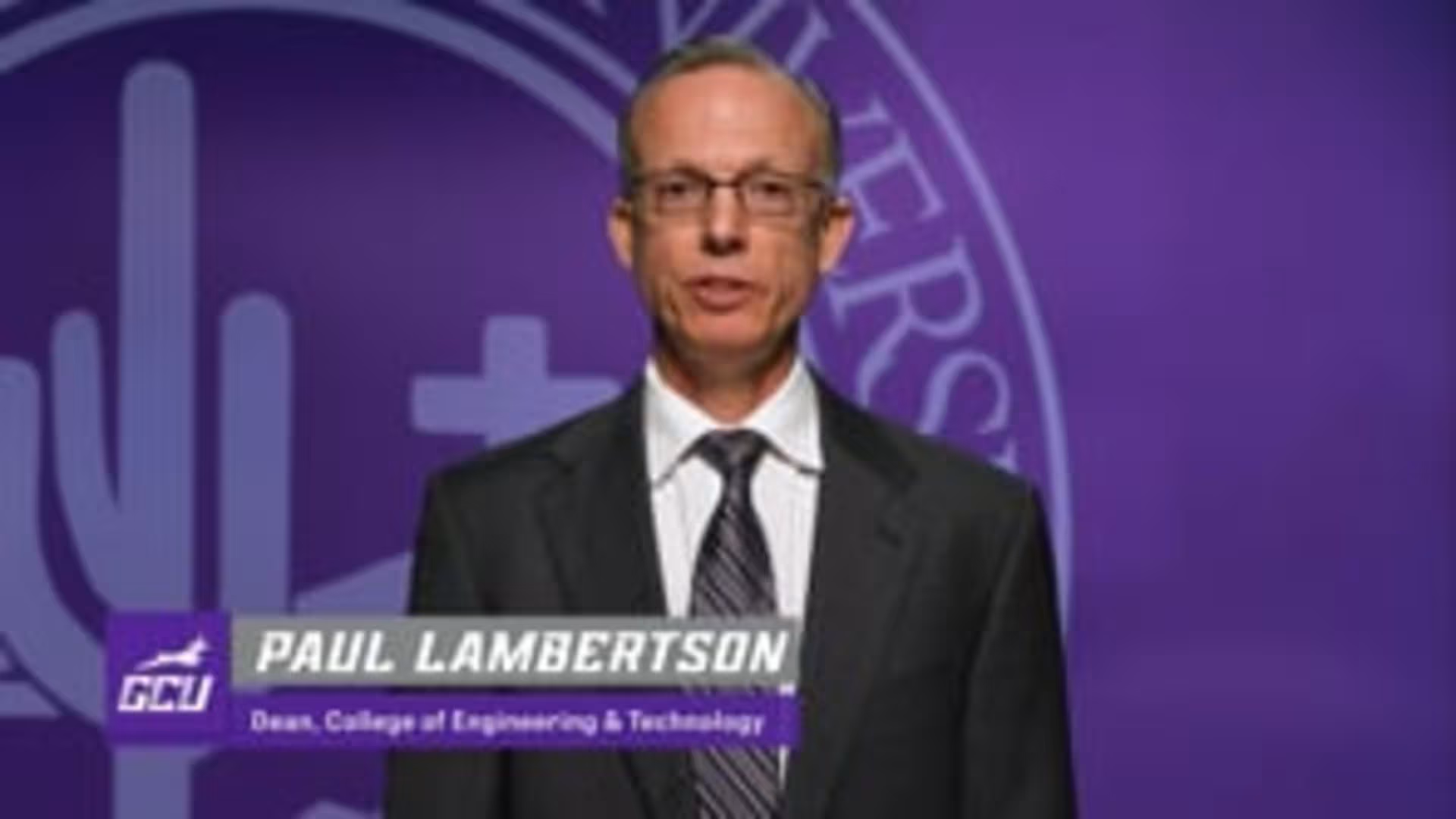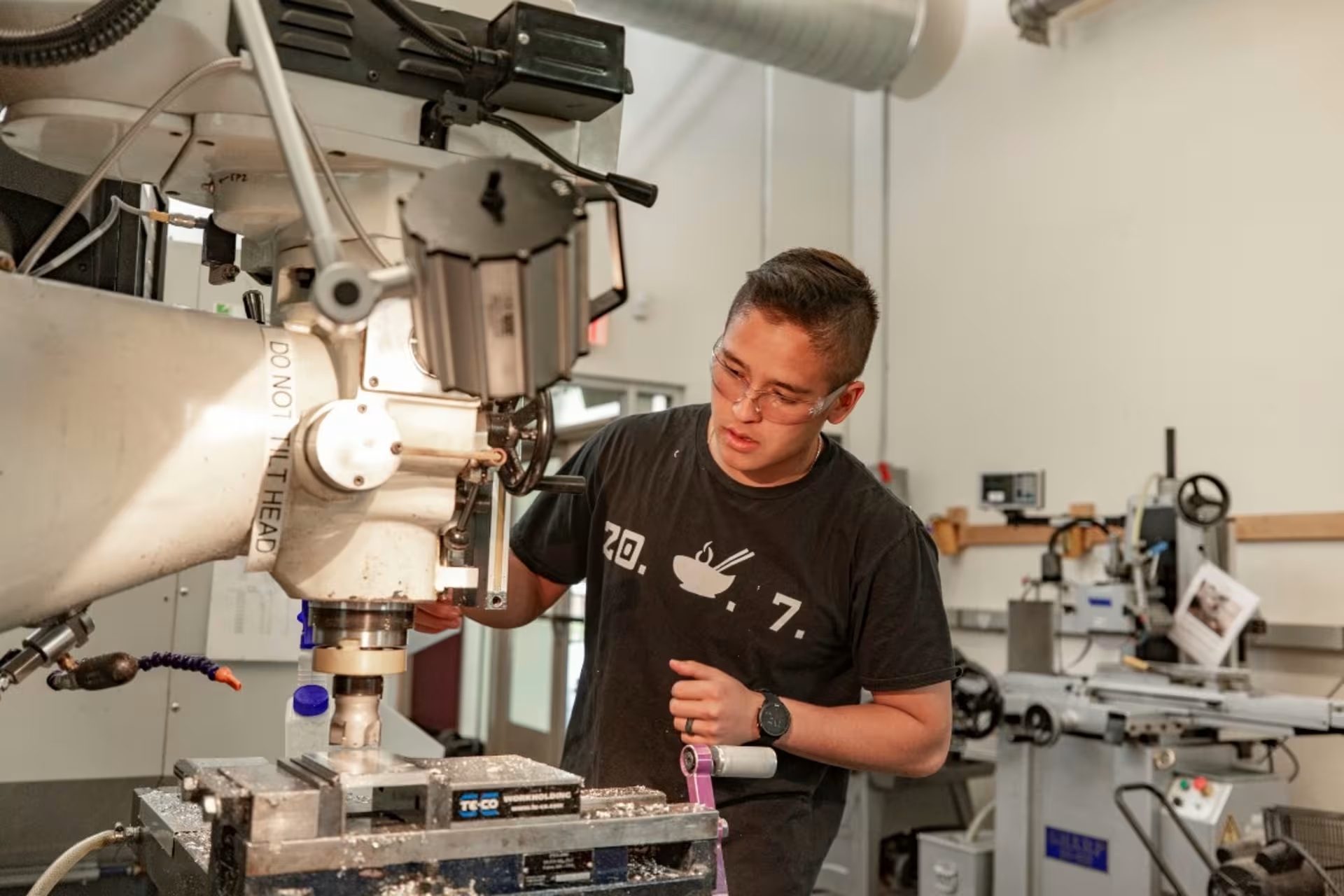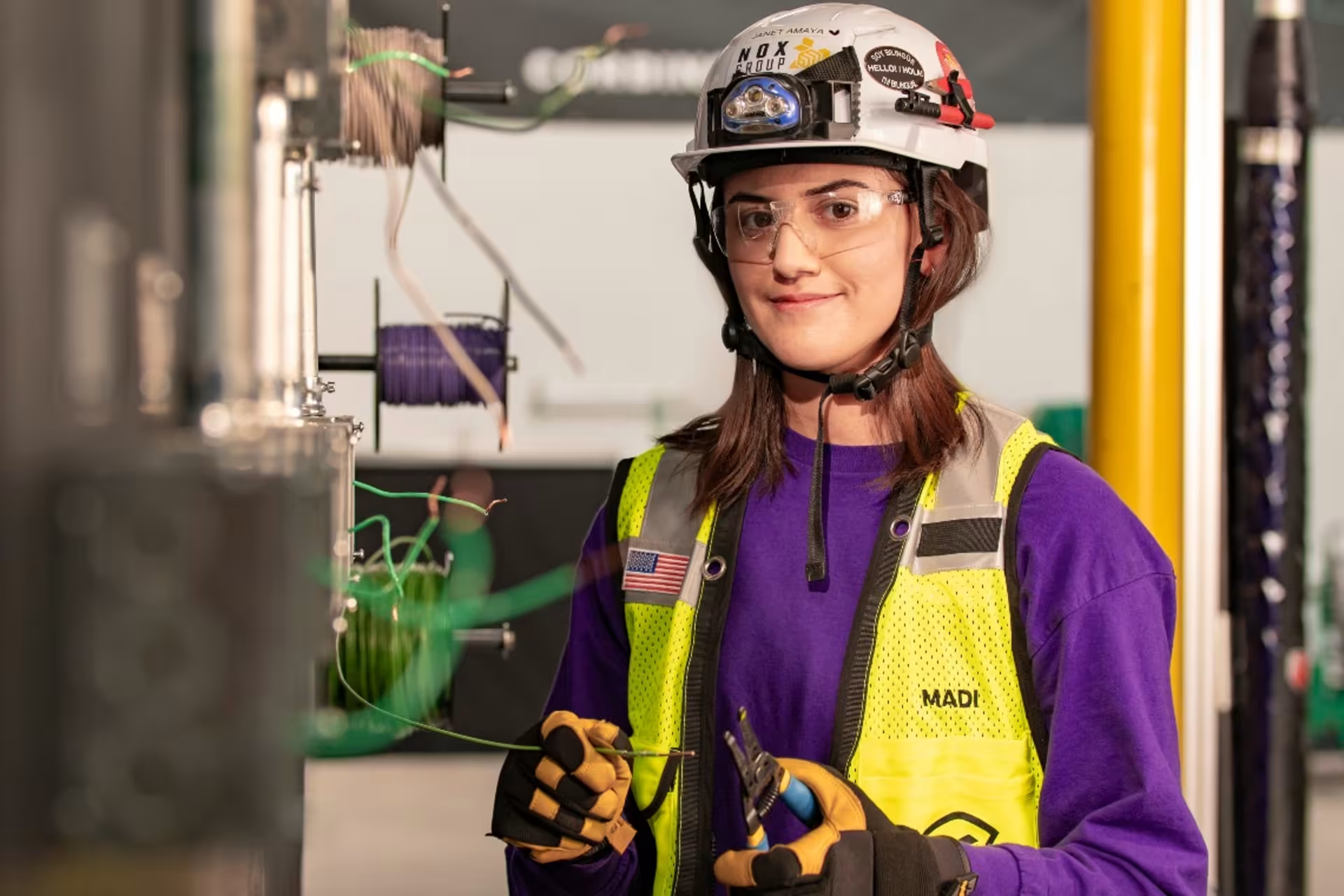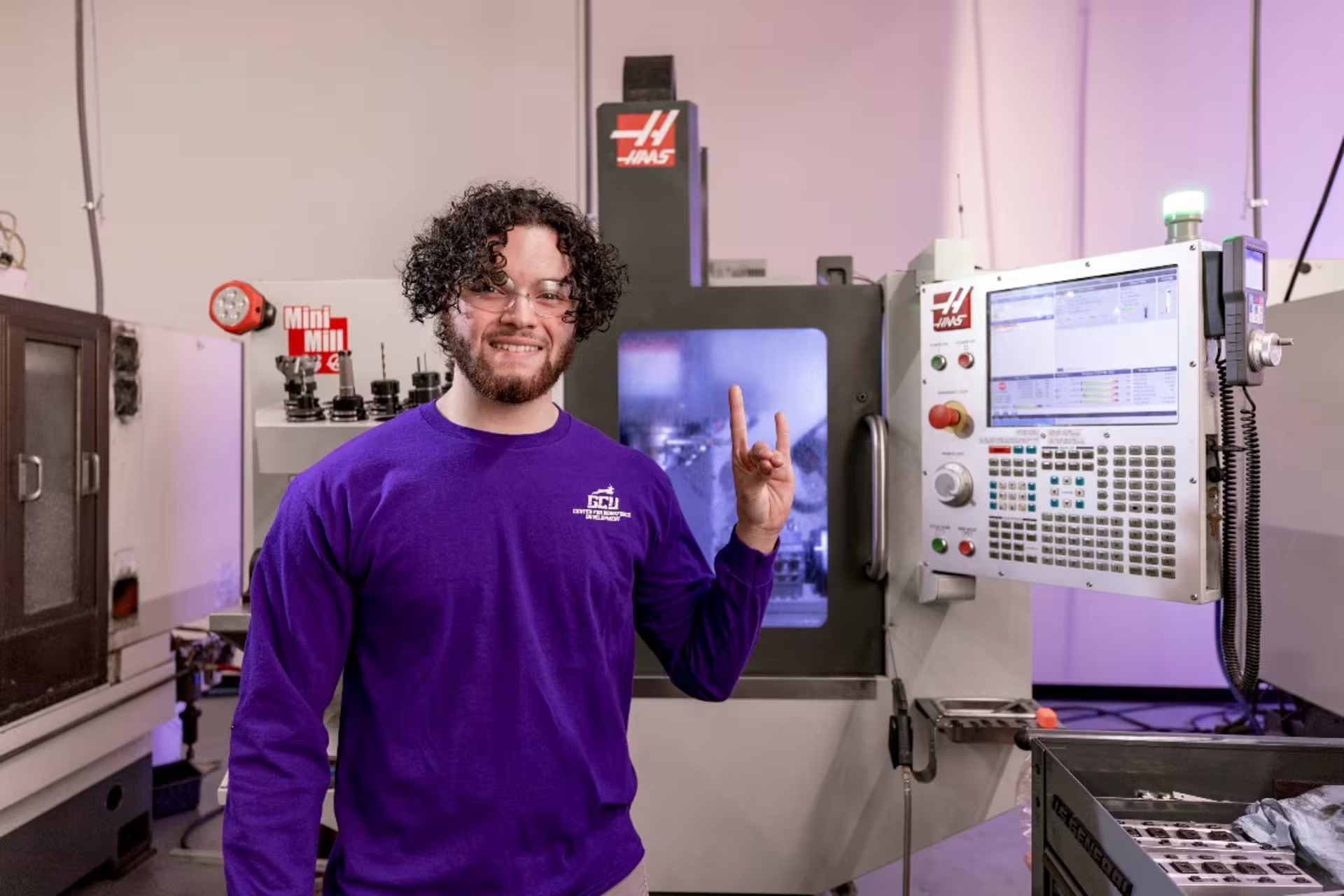
Bachelor’s in Industrial Engineering Degree
Gain a Hands-On Engineering Education
If you are interested in engineering and desire to learn about applied math and business topics, explore the Bachelor of Science in Industrial Engineering at Grand Canyon University. In this engineering studies program, you will be taught key competencies applicable to manufacturing, supply chain management, process improvement and other engineering specializations.
Graduates will be expected to apply an innovative mindset and problem-solving skills to design or improve systems, as well as utilize processes for the purpose of optimizing productivity and efficiency for organizations.

Campus: $8,250 per semester [More Info]
Up to 90 credits, only 84 can be lower division
Credits: Fill out the Lopes Eval to find out what will transfer
Admission Requirements (Bachelor's)
- 16+ years old
- High School Graduate
- 3.0+ Unweighted GPA
OR 2.5+ Unweighted GPA and
- ACT: 19
- SAT: 1000*
Admission requirements may differ based on degree level, program and modality, or transfer status. Some programs of study may require a higher GPA and/or other qualifying criteria for admission. Please review full admission and program requirements in the University Policy Handbook.
*Math and reading only on a 1600 point scale (test date after 3/1/2016). SAT score of 1380 required for 2400 point scale (test date before 3/1/2016).
Earn Your BS in Industrial Engineering Degree From GCU
You will work through a comprehensive curriculum designed to develop well-rounded individuals who aim to excel in both technical competencies and essential, business-ready soft skills like communication and problem-solving. This bachelor’s degree in industrial engineering offers a robust framework of theoretical knowledge combined with a focus on practical experience. The program includes numerous lab classes and a capstone project, where you will have opportunities to apply what you’ve learned. This hands-on approach can prepare you to tackle modern challenges in the field.
Pursue Your Degree on Campus
Christian Identity and Mission
Industrial Engineering Courses and Competencies
GCU provides a well-rounded approach that can help prepare you for a career in the engineering field.
Some areas of focus include:
Complete a Capstone Project
At the end of your program, you will be required to complete a capstone project, which allows you to showcase your knowledge and skills in analyzing and designing system improvements. This multidisciplinary design and research project will be completed with the support of classmates, mentors and more than 20 classroom lab facilities that offer hands-on STEM workspaces and resources.

Dive Into Manufacturing, Logistics, Distribution and More
An industrial engineer needs to be able to provide new processes or suggest design changes to help eliminate production waste and promote efficient utilization of employees and equipment. The dedicated engineering faculty at GCU teaches an in-depth curriculum that can help foster academic growth across a wide range of math, science and design competencies to help prepare you for a career in this field.
You can expect to examine core concepts in areas such as:
Production and operations management
Quality engineering
Systems design
Project management
Process improvement
Supply chain management
Logistics
Human factors and ergonomics
Simulation modeling
Median annual wage for industrial engineers as of May 2023(See disclaimer 1)
Estimated job growth for industrial engineers from 2022 to 2032(See disclaimer 2)

Industrial Engineering Career Paths
As an industrial engineer, mastery of manufacturing processes and best practices for performing statistical analyses is crucial. This requires a thorough understanding of sustainable design, engineering principles, applied probability and statistics and quality assurance.
With a firm foundation in these skills, you might pursue jobs such as:
Earn Your Degree From an Institutionally Accredited University
Our institutionally accredited university delivers a high-quality education that can help prepare you to make positive contributions in your field and within your community. In addition, the Higher Learning Commission has continually accredited GCU since 1968. The College of Engineering and Technology shares the university’s commitment to upholding the principles and standards established by our accrediting bodies.
BS in Industrial Engineering Degree FAQs
To help you determine if an engineering education is right for you, we’ve answered a few of your most frequently asked questions below. Explore these insights to make an informed decision about your academic and career path.
What kind of jobs can you get with a degree in industrial engineering?
How hard is an industrial engineering degree?
What skills are taught in a bachelor’s in industrial engineering degree?
How useful is an industrial engineering degree?
How do you get a bachelor’s degree in industrial engineering?
Program Curriculum
General Education Requirements
Required General Education Courses
Core Courses

Surround yourself with a supportive learning environment as you prepare to pursue a career in industrial engineering.
- The earnings referenced were reported by the U.S. Bureau of Labor Statistics (BLS) Industrial Engineers, as of May 2023, retrieved on June 24, 2024. Due to COVID-19, data from 2020 to 2023 may be atypical compared to prior years. BLS calculates the median using salaries of workers nationwide with varying levels of education and experience. It does not reflect the earnings of GCU graduates as industrial engineers, nor does it reflect the earnings of workers in one city or region of the country or a typical entry-level salary. Median income is the statistical midpoint for the range of salaries in a specific occupation. It represents what you would earn if you were paid more money than half the workers in an occupation, and less than half the workers in an occupation. It may give you a basis to estimate what you might earn at some point if you enter this career. Grand Canyon University can make no guarantees on individual graduates’ salaries. Your employability will be determined by numerous factors over which GCU has no control, such as the employer the graduate chooses to apply to, the graduate’s experience level, individual characteristics, skills, etc. against a pool of candidates.
- COVID-19 has adversely affected the global economy and data from 2020 to 2022 may be atypical compared to prior years. Accordingly, data shown is effective September 2022, which can be found here: U.S. Bureau of Labor Statistics, Occupational Outlook Handbook, Industrial Engineers, retrieved on June 24, 2024.
- Career Explorer. (n.d.). What Does an Industrial Engineer Do? Retrieved June 18, 2024.
- U.S. Bureau of Labor Statistics. (2024, May 16). How to Become an Industrial Engineer. Occupational Outlook Handbook. Retrieved June 24, 2024.


